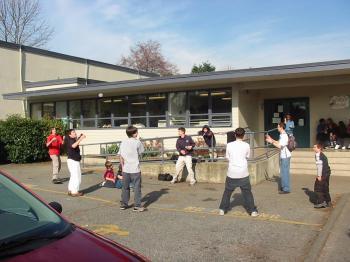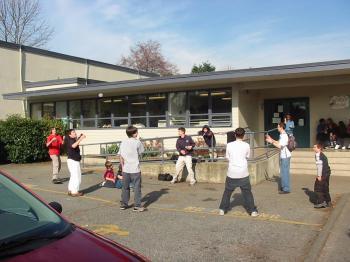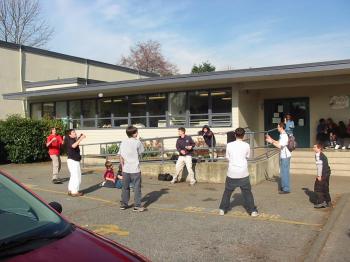Alternative, Independent Schools Offer Unique Educational Approach
In these days of crowded classrooms, overburdened teachers and cash-strapped school boards, there are concerns that the quality of education available to students may sometimes be less than stellar.
Alternative and independent schools, each with its own specific educational method, provide an option for parents who want something more for their child or for students who are struggling in the public school system.
When Helen Hughes’ daughter was having problems in the public system Hughes didn’t have her change schools or send her to a counselor — she took a giant leap and started her own alternative school.
“My daughter was dying in the public school system. She had stomach aches all the time, couldn’t sleep and lost her enthusiasm for life. Public school didn’t suit her,” says Hughes.
That was 37 years ago, and Hughes’ daughter is now a teacher at Windsor House School, so-called because Hughes lived on Windsor Avenue in North Vancouver when she founded the school.
Since then, Windsor House has been providing an education for kids who, for whatever reason, can’t make it in the public system.
“We have many children who come quite defeated and depressed and they just blossom,” says Hughes.
Although Windsor House ran as a private school for the first four years, it has since been publicly funded by the North Vancouver School District. It currently has about 125 students, ranging in age from five to 19.
Windsor House focuses on non-coercive, democratic learning, which means students may ask for specific classes or activities and efforts are made to provide what they have requested.
The classes are small and multi-age group, says Hughes, and choice is emphasized as is parent participation. “The parents bring the richness of their lives into the school so we have this huge variety of offerings.”
In democratic education, students are seen as active participants in their own learning and their environment. The students’ opinion is taken into account, both in the direction their education should take and in decisions concerning rules etc. implemented in the school.
Democratic learning is becoming more popular, and the first conference ever in Canada on this unique teaching method will take place at the University of British Columbia from August 11 – 18.
Jones House School
Another alternative for students is Jones House School, located in a newly renovated building in the heart of downtown Vancouver. Slated to open in September, Jones House is an independent academic high school that will cater to local and international students.
With small classes that enable its B.C. certified teachers to provide focused learning support to each individual student, Jones House endeavours to help students not only do well but to excel.
“Jones House will meet the needs of students who didn’t flourish as well in larger school settings and who want to work toward high levels of achievement to make it more likely that they would be accepted into university,” says dean of admissions Daniel Chowne.
The school sports a library and a computer lab, with more resources nearby such as the Vancouver Art Museum, various theatres and the main branch of the Vancouver Public Library.
Jones House was founded by Jin Jones and her husband Gareth, who, through their Open Mind Academy, have been providing after school learning support for students in cooperation with local schools for 16 years.
“Jones House will help students to achieve their goal and if their level is not that high they will have help from the Open Mind after school academy program,” says Ms. Jones.
Jones House intends to become an International Baccalaureate (IB) school by 2010. IB is a worldwide “community of schools” that offers three programs for students aged three to 19. There are 2,384 IB schools in 129 countries.
According to its website, IB’s mission is to create a better world through education and promoting “intercultural understanding and respect.”
IB programs, says Jones, have a high standard. “IB is a very academic way to study so we’re trying to help our students reach that high, advanced level.”







